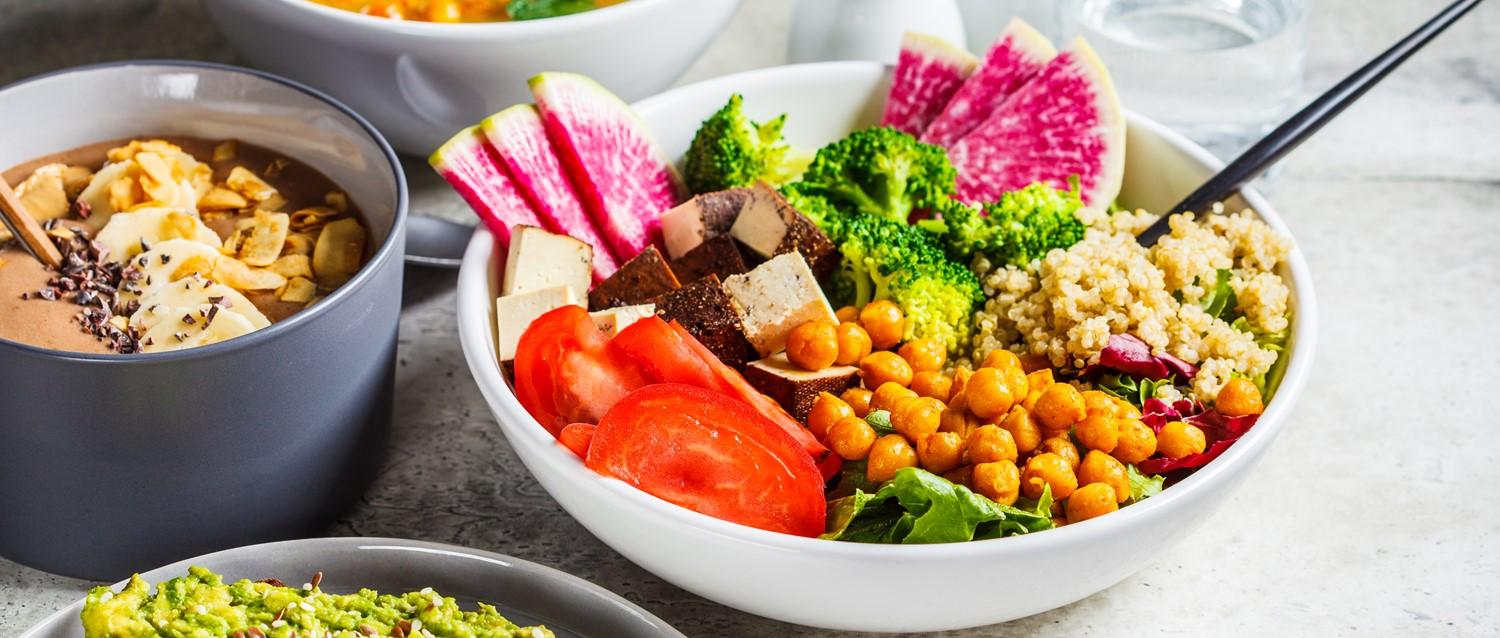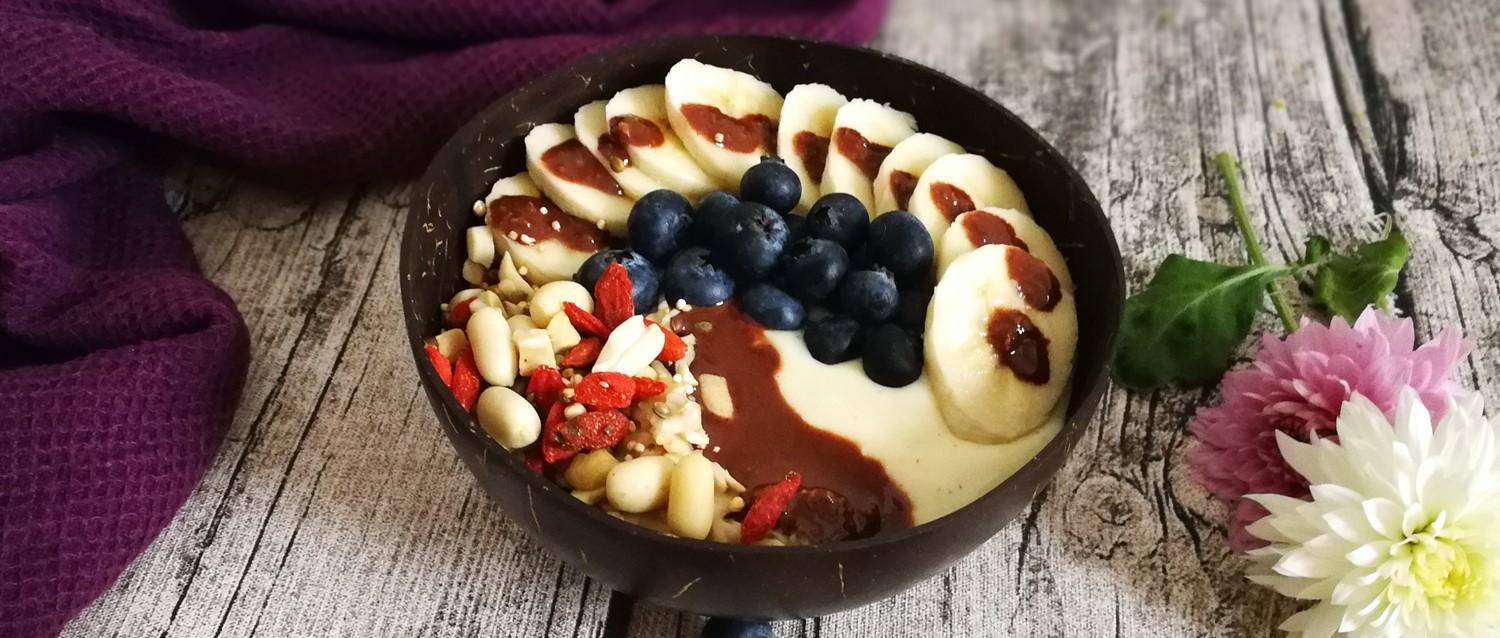
5 easy vegan swaps for Veganuary 2024
Peer reviewed by Dr Krishna Vakharia, MRCGPLast updated by Amberley DavisLast updated 1 Jan 2024
Meets Patient’s editorial guidelines
- DownloadDownload
- Share
- Language
- Discussion
If you enjoy meat, the idea of an entirely plant-based diet can be very daunting. What if your cravings for bacon become too strong? And how many more recipes will you need to learn? Here we talk to Chef Isabella Flint about making Veganuary a little easier. She shares her five easy vegan swaps to help curb your meat cravings.
In this article:
Continue reading below
Why try vegan swaps?
The first month of the year is often seen as a clean slate - a chance for us to reset and rid ourselves of certain behaviours or habits of the previous year. January is also an ideal time to try something new, particularly something that's good for us in some way.
In the spirit of new year resolutions and self-betterment, non-profit organisation Veganuary challenges participants to follow a vegan diet for the whole of January. Their mission? To encourage more people to follow solely plant-based diets in order to end intensive animal agriculture to the benefit of animals, planet, and people.
Alongside the environmental and ethical reasons for trying a vegan diet, it also offers a range of personal health benefits you may want to consider.
These benefits include:
Improving your gut health.
Improving your brain health.
Reducing your risk of cancer.
Managing obesity, arthritis, and neurological conditions.
Reducing antibiotic resistance - use in farm animals has a knock-on effect for public health.
Isabella Flint is a professional chef and the founder of Fanatically Food. She shares her five favourite vegan food swaps - the healthy plant derived products that do a great job of mimicking your favourite meat-based foods.
1. Jackfruit - pulled pork
If you don't believe that a fruit could pull off a good pork impression, then try jackfruit as a substitute for pulled pork - you might change your mind. Flint explains why jackfruit makes a great plant-based alternative:
"Jackfruit doesn't need a lot of skill to perfect, and the texture is already very similar to pulled pork. If marinated in some BBQ sauce, it tastes exactly the same."
Jackfruit is also a good source of vitamins and minerals, including vitamin C, fibre, and potassium1. Health benefits of eating jackfruits may include:
Lower levels of bad cholesterol2.
Improved digestive health due to dietary fibre3.
Lower blood sugar levels.
Decreased risk of stomach ulcers due to antioxidant properties4.
Continue reading below
2. Tempeh - bacon
Worried you'll miss bacon during Veganuary? The chef has you covered: "The one food that everyone mentions when they try to go vegan is bacon. No one can seem to give it up, and although there is nothing exactly the same as bacon, tempeh is a fantastic alternative that comes very close to the real thing," says Flint.
Made from soybeans, tempeh is a nutritious vegan protein5 that may help to lower cholesterol levels and improve bone health if consumed regularly. It’s also considered to be an affordable and sustainable meat alternative.
"Tempeh absorbs the flavours it's cooked with very easily. When it's cut thin and fried in a hot pan, it becomes crispy and has the same texture as bacon, so you can have the tasty crunch of a BLT without the B," Flint adds.
3. Portobello mushroom - beef burger
"While it's true that mushroom doesn't taste like beef, a portobello mushroom can be a fantastic and healthy vegan alternative to a beef burger," says Flint.
"When fried like a burger, a portobello mushroom has a fantastic taste and texture between two burger buns. Seasoned well and topped with vegan cheese, you may even prefer it to beef."
As well as imparting a delicious umami flavour, portobello mushrooms also supply several health benefits: they're low in fat and calories and high in copper - a mineral that helps your body to form connective tissue and produce antioxidants6. To keep this vegan swap healthy, fry using a little olive oil - good for you in moderation - or oven grill.
Continue reading below
4. Seitan - chicken
According to Flint, this wheat protein is a great food swap for the protein you'll be missing from meat. It's an especially good substitute for chicken, with a similar satiating texture that can easily be used in a stir-fry, stew, or a sandwich.
As well as being high in protein7 - important for the growth and repair of your body's cells and tissues - seitan also contains beneficial minerals, such as copper, iron, and calcium. Seitan contains gluten, which has received a lot of bad press in recent years. However, there is little scientific evidence to support the claims that gluten is unhealthy for people who don't have coeliac disease or gluten intolerance.
5. Tofu - a range of meat pieces
Finally, who could forget tofu, a soybean product that Flint describes as the cornerstone of the vegan diet. This is mainly because of its versatility in cooking. "I love using tofu as a replacement for chicken and meat in a stir-fry or a curry, or as an egg replacement in a tofu scramble" says Flint. "This is because, like tempeh, tofu is fantastic at absorbing the flavours of the spices and sauces it's cooked in. It also provides a nice chunk of vegan protein to your dish."
There has been some debate over how healthy tofu is. Tofu itself is rich in essential vitamins and minerals8 and, as a soy product, eating it regularly may help reduce your chances of fatal heart attack if you have a history cardiovascular disease9.
You'll easily find a range of vegan products based around tofu. However, not all of these will be healthy. Experts explain that it's challenging to retain all of tofu's nutrients in the production process. Avoid preparations with lots of salt, sugar, or saturated fat - always check the label.
These plant-derived meat substitutes can really help meat eaters transition to a vegan diet - for Veganuary and in the long term. But there is much more to a vegan diet that makes it healthy. Above all else, don't forget to pack in a colourful assortment of vegetables and fruit every day.
Further reading
Okafor et al: Plasma lipid profiles and atherogenic indices of rats fed raw and processed jackfruit (artocarpus heterophyllus) seeds diets at different concentrations.
Gill et al: Dietary fibre in gastrointestinal health and disease.
Ranasinghe et al: Nutritional and health benefits of jackfruit.
The Nutrition Source: Gluten: a benefit or harm to the body?
American Heart Association: Clearing up questions on whether tofu is healthy.
Wang et al: Consumption of soy products and cardiovascular mortality in people with and without cardiovascular disease: a prospective cohort study of 0.5 million individuals.
Patient picks for Vegan and vegetarian

Diet and nutrition
What are the health benefits of a vegan diet?
Veganism is on the rise, and one survey conducted in 2016 found that the number of vegans rose a whopping 360% in the previous decade. Plant-based diets also gained popularity worldwide last year, as awareness was brought to the connections between disease and meat consumption. Since 2020 there has been a 40% increase in vegans in Britain, with the estimated total being 1.5 million people.
by Emily Jane Bashforth

Diet and nutrition
How to build muscle on a vegan diet
With 3.25% of adults aged over 15 years now following plant-based diets, veganism in Great Britain is on the rise. There are growing numbers of people interested in making 'vegan gains' - building muscle on a vegan diet. With careful planning, it is possible to maximise muscle growth on a plant-based diet.
by Amberley Davis
Continue reading below
Article history
The information on this page is peer reviewed by qualified clinicians.
1 Jan 2024 | Latest version
18 Jan 2023 | Originally published
Authored by:
Amberley Davis

Ask, share, connect.
Browse discussions, ask questions, and share experiences across hundreds of health topics.

Feeling unwell?
Assess your symptoms online for free